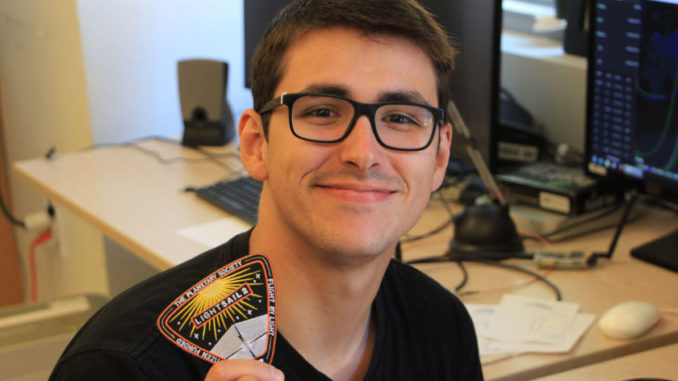
LightSail is a citizen-funded project from The Planetary Society to send a small spacecraft, propelled solely by sunlight, to Earth orbit. We are going to be streaming the regular CCAS meeting straight from us to you, so you can participate online from home.
View original YouTube live stream (with comments) here.
ABOUT THE GUEST SPEAKER:
It took 10 years to transform The Planetary Society’s crowdfunded LightSail 2 mission from an idea on the drawing board into a space mission. Dozens of people worked on the project over the years, backed by funding from more than 50,000 Planetary Society members, private citizens, foundations, and corporate partners.
But out of all those people, only one person, known as the ground operator, can communicate with the spacecraft at a time. That role is often filled by Michael Fernandez, a fourth-year physics undergrad at Cal Poly San Luis Obispo. When he’s on duty, you can find Fernandez in the Cal Poly CubeSat Laboratory, also known as PolySat, ready to punch commands into his laptop whenever LightSail 2 is in range of the spindly radio antennas on a nearby roof.
Due to the complexities of orbital mechanics, LightSail 2 is only in range of its ground stations at Cal Poly, Purdue, Georgia Tech, and Kauai Community College for a few minutes each day. During those intervals, it’s Fernandez’s job to complete any tasks requested by the mission team. He might command the spacecraft to send him some stored telemetry or upload new orbital data that helps LightSail 2 know where it is.
It’s not all that different than using a command-line interface to transfer files between computers. Except the computer he’s talking to is 700 kilometers overhead, flying at a speed of 7 kilometers per second.
Read more about the Light Sail here.
Follow Us:
